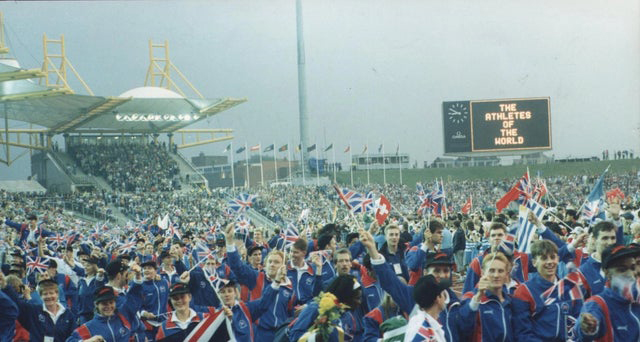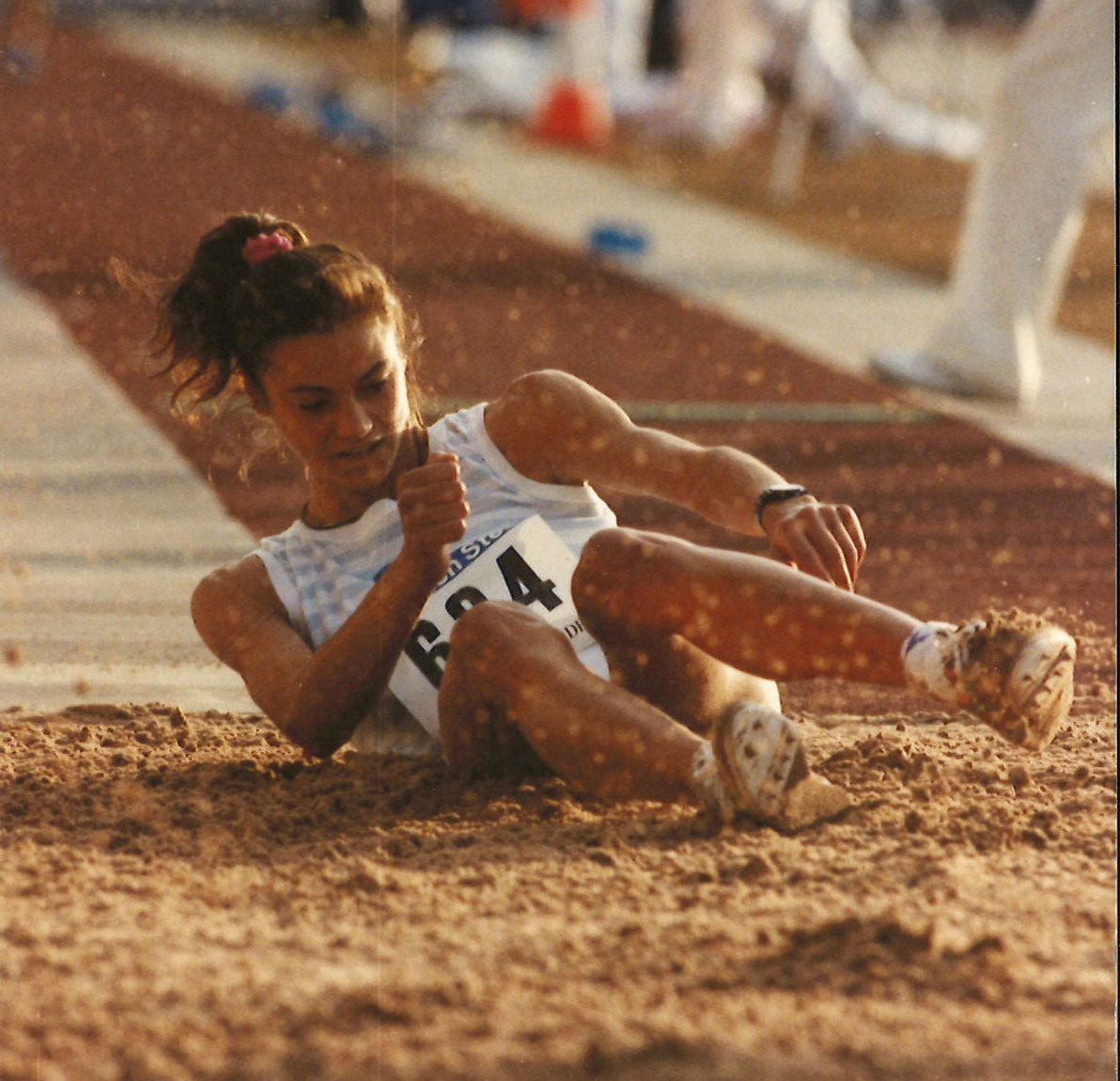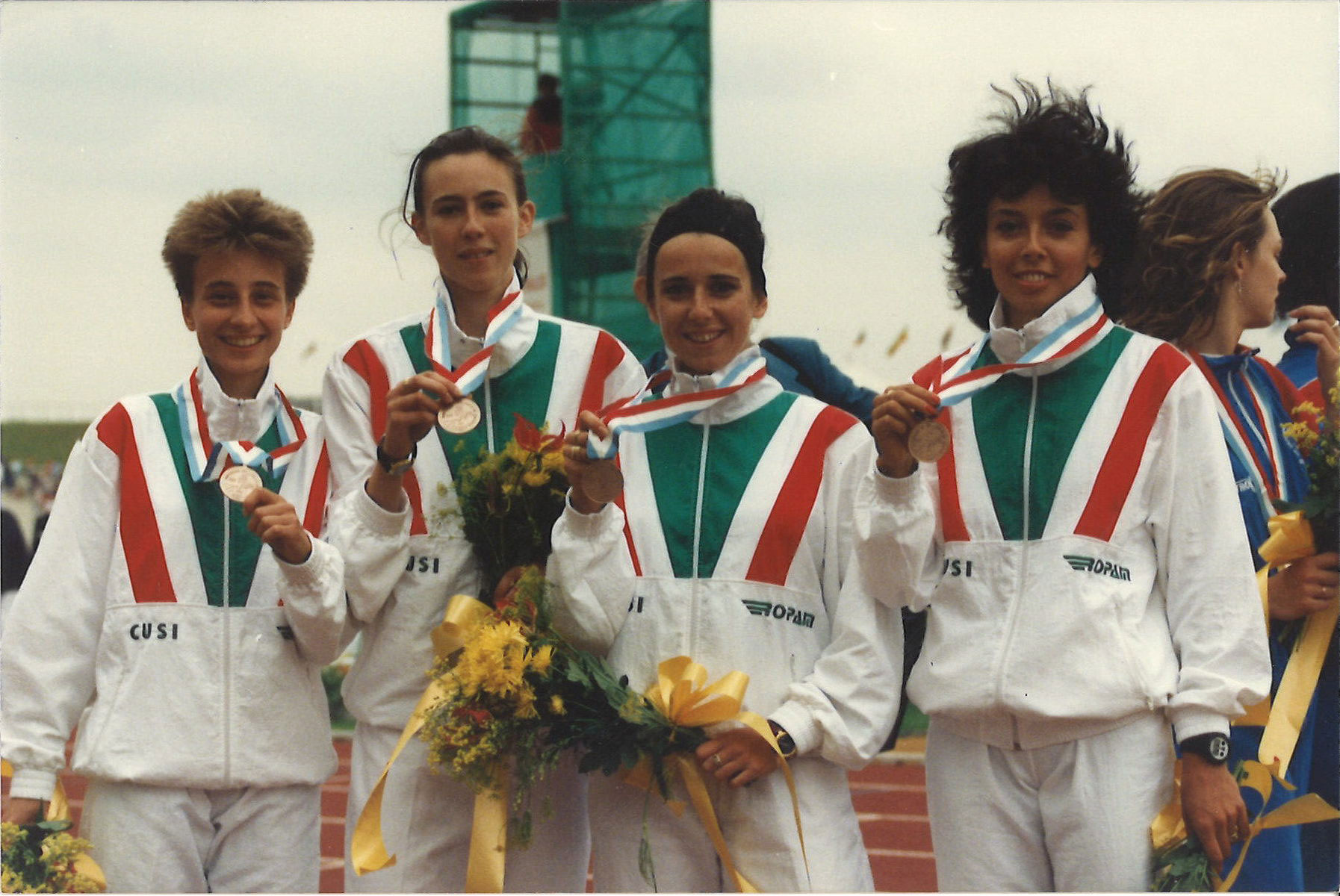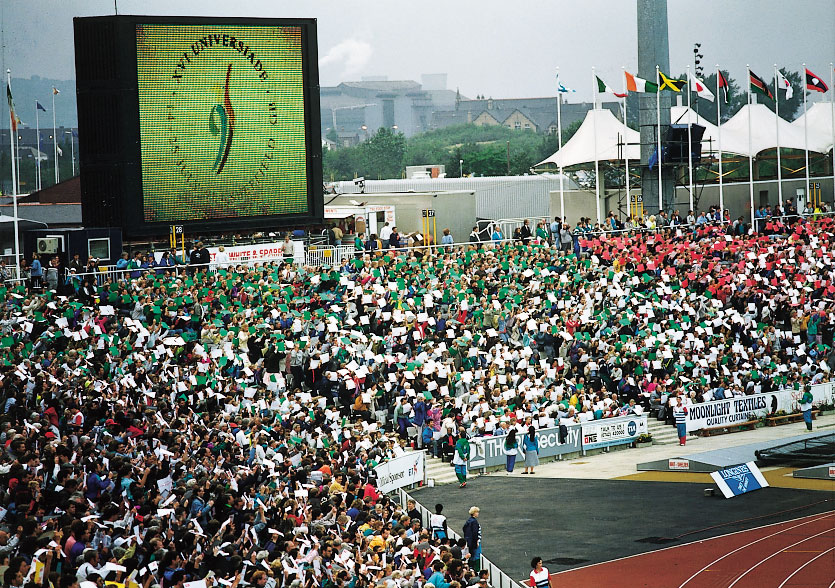Take a stroll through memory lane in South Yorkshire as student-athletes head to a longtime sports-mad city that’s been rejuvenated by Sheffield hosting the XVI Summer Universiade
The first and only Universiade to be held to date in Great Britain took place from 14-27 July 1991 in Sheffield.
After a decade of economic downturn, the city council saw the Universiade not only as a celebration of youth and sport but as an opportunity for socio-economic regeneration and a hopeful future.

Much like the organisers of London 2012 would use the Olympic Games to reclaim contaminated land and turn it into the Olympic Park two decades later, organisers in Sheffield used the Universiade project to raze disused steelworks and replace them with new sports facilities, including the Don Valley Stadium, Ponds Forge Swimming Complex, the multipurpose 10,000-seat Don Valley Arena and several smaller centres.
The Don Valley Stadium, which was eventually demolished in 2013, is now probably best remembered for its ties with two of Great Britain’s most iconic women: Sheffield’s own Helen Sharman and Dame Jessica Ennis-Hill.
Britain’s first astronaut, Sharman is also known for having dropped the embers from the torch that was supposed to light the cauldron during the Opening Ceremony. Despite completely extinguishing the flame, Sharman continued on her run with the dud torch. The cauldron was eventually lit by internal ignition.
 Great Britain’s “National Sweetheart” of the London 2012 Olympic Games, Jessica Ennis-Hill, got her start in athletics at Don Valley Stadium, a disused steel mill turned track and field stadium
Great Britain’s “National Sweetheart” of the London 2012 Olympic Games, Jessica Ennis-Hill, got her start in athletics at Don Valley Stadium, a disused steel mill turned track and field stadium
A few years later, “national sweetheart” Jessica Ennis-Hill would be discovered on the Don Valley track as a promising 10-year old. The heptathlete would use the track as her personal training ground for many years. She went on to win heptathlon gold at London 2012, silver at Rio 2016, as well as three world championships.
HRH Anne, Princess Royal, officially opened the Universiade in front of an audience of around 25,000 people.
In total, 4,622 athletes competed in the ten traditional sports disciplines (athletics, basketball, fencing, football, gymnastics, swimming, diving, volleyball, tennis and water polo) and one optional sport: field hockey.
 An Italian relay team shows off their medals after the podium celebration at the Don Valley Stadium during the 16th edition of the Summer Universiade
An Italian relay team shows off their medals after the podium celebration at the Don Valley Stadium during the 16th edition of the Summer Universiade
It was the first time that field hockey had appeared at the university games, despite it being a part of the Olympic programme since 1924. Great Britain would go on to win the men’s final, with the Netherlands taking top honours in the women’s event.
Thanks to the cooperation between FISU and the Sheffield organisers, an aide programme was extended to developing countries so that their athletes could attend the Games. As a result, 101 countries took part in the 1991 Universiade.
Only two years after the Universiade in Duisburg, West Germany, Sheffield welcomed a unified German team participating under the same flag for the first time at a Summer Universiade (the unified team first appeared at a winter Universiade earlier in 1991 in Sapporo).
The USA finished high atop the medals table with 76 medals in total (29 gold, 22 silver and 25 bronze) with China (50 medals) and the Soviet Union (46 medals) finishing second and third, respectively.
 Passionate sports fans packing the stadiums was a common site during the XVI Summer Universiade
Passionate sports fans packing the stadiums was a common site during the XVI Summer Universiade


